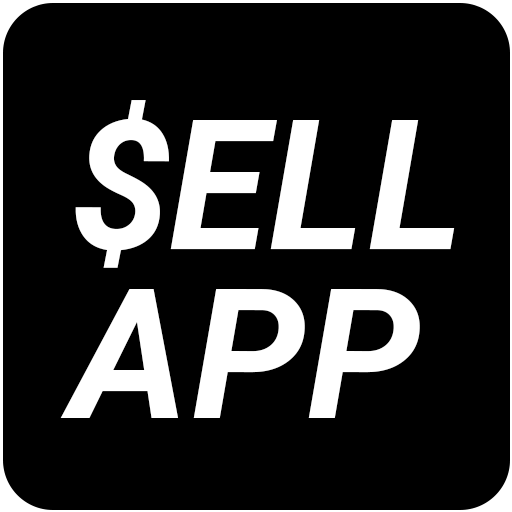Having a great app idea is the first step toward success in the tech world, but turning that idea into profit is where the real challenge lies. Many aspiring entrepreneurs have brilliant concepts but lack the resources or technical skills to bring them to life. Fortunately, selling your app idea to a company or investor can be a viable path to monetizing your creativity.
In this guide, we’ll explore the steps you need to take to successfully sell your app idea, from protecting your intellectual property to pitching your concept effectively.

Validate Your App Idea
Before you approach potential buyers, it’s essential to validate your app idea to ensure there’s a market for it. Validation involves researching the market, understanding your target audience, and confirming that your idea solves a real problem.
- Conduct Market Research: Analyze the app market to see if there are similar apps already available. Identify gaps or shortcomings in existing solutions that your app could address.
- Understand Your Target Audience: Who will use your app? What are their needs, preferences, and pain points? Understanding your audience helps refine your idea and make it more appealing to potential buyers.
- Create a Minimum Viable Product (MVP): If possible, develop a basic version of your app that includes only the essential features. An MVP demonstrates the feasibility of your idea and provides a tangible product to show investors or companies.
Protect Your Intellectual Property
Protecting your app idea is crucial before sharing it with potential buyers. While you can’t patent an idea, you can take steps to safeguard your intellectual property.
- Use Non-Disclosure Agreements (NDAs): Before discussing your idea with anyone, ask them to sign an NDA. This legal document prevents them from sharing or using your idea without permission.
- Consider Copyrights and Trademarks: If your app idea involves unique branding elements like a name, logo, or slogan, consider registering them as trademarks. Copyrights can protect any original content, such as code or design elements, associated with your app.
- Document Your Idea: Keep detailed records of your app concept, including sketches, notes, and development progress. This documentation can serve as evidence that you were the original creator of the idea.
Develop a Pitch and Business Plan
A well-prepared pitch and business plan are essential tools for selling your app idea. These documents demonstrate your professionalism and show potential buyers that you’ve thoroughly thought through the business potential of your idea.
- Craft a Compelling Pitch: Your pitch should clearly articulate what your app does, the problem it solves, and why it’s unique. Highlight the market opportunity, potential revenue streams, and how the buyer can benefit from investing in or acquiring your idea.
- Create a Business Plan: A detailed business plan outlines your app’s target market, revenue model, marketing strategy, and financial projections. It shows potential buyers that you’ve considered all aspects of the business and that your idea is viable.
- Prepare a Demo: If you have an MVP or prototype, include a demo in your pitch. Demonstrating how the app works can be far more persuasive than just explaining it.
Identify Potential Buyers
Knowing who to approach is key to successfully selling your app idea. Potential buyers could include app development companies, tech firms, investors, or entrepreneurs looking for new projects.
- App Development Companies: These companies are always on the lookout for new ideas that align with their expertise and portfolio. Research companies that have developed similar apps and approach them with your concept.
- Tech Firms: Larger tech companies may be interested in acquiring innovative app ideas that complement their existing products or services.
- Investors: Angel investors and venture capitalists are often willing to invest in promising app ideas, especially if they see the potential for high returns. Networking at industry events or using online platforms like AngelList can help you connect with investors.
- Entrepreneurs: Independent entrepreneurs who lack the technical skills to develop an app may be interested in buying your idea to bring it to market themselves.
Approach Potential Buyers
Once you’ve identified potential buyers, it’s time to approach them with your pitch. How you present your idea can make or break the deal.
- Personalize Your Approach: Tailor your pitch to each potential buyer. Research their business, understand their needs, and explain how your app idea aligns with their goals.
- Use Professional Communication: Whether you’re reaching out via email, LinkedIn, or in person, maintain a professional tone. Be concise, clear, and respectful of their time.
- Follow Up: If you don’t hear back after your initial pitch, don’t be discouraged. A polite follow-up message can remind them of your idea and show your persistence.
Negotiate the Sale
If a buyer expresses interest in your app idea, the next step is negotiation. This is where you discuss the terms of the sale, including the price, payment structure, and any ongoing involvement you may have in the app’s development.
- Know Your Worth: Have a clear understanding of your app’s value and be prepared to justify your asking price. Consider factors like the app’s market potential, the amount of work you’ve already invested, and the buyer’s financial capacity.
- Be Open to Different Deal Structures: Some buyers may prefer to purchase the idea outright, while others might offer royalties, profit-sharing, or equity in the project. Evaluate each offer based on your long-term goals.
- Seek Legal Advice: Before finalizing any agreement, consult with a lawyer to ensure the terms are fair and that your interests are protected.
Close the Deal
Once negotiations are complete, it’s time to close the deal. Ensure all terms are clearly outlined in a written contract.
- Sign the Agreement: Both parties should sign the contract, which should include all the agreed-upon terms, including payment details, transfer of intellectual property rights, and any ongoing responsibilities you may have.
- Transfer Ownership: After the agreement is signed, you’ll need to transfer any relevant assets to the buyer. This could include documentation, prototypes, source code, and any intellectual property rights.
- Receive Payment: Ensure that the payment is processed according to the terms in the contract. This could be a lump sum payment, installments, or a percentage of future profits, depending on what was negotiated.
Consider Future Opportunities
Selling your app idea is just the beginning. As a creative entrepreneur, you can leverage this experience to build your reputation and explore new opportunities in the tech industry.
- Stay Involved in the Industry: Keep networking and staying informed about trends in app development. This can help you identify new opportunities and perhaps even develop your next app idea.
- Learn from the Experience: Reflect on the process of selling your app idea. What worked well? What could have been improved? Use these insights to refine your approach for future ventures.
- Build a Portfolio: If you plan to develop and sell more app ideas, start building a portfolio that showcases your past projects. This can make it easier to attract buyers and negotiate better deals in the future.
Turning Your App Idea into Profit
Selling an app idea requires careful planning, strategic pitching, and a good understanding of the market. By following the steps outlined in this guide—validating your idea, protecting your intellectual property, crafting a compelling pitch, identifying potential buyers, and negotiating effectively—you can increase your chances of turning your app idea into a profitable venture.
Remember, the key to success lies in persistence, professionalism, and a willingness to learn from each experience. With these qualities, you can navigate the complex world of app development and entrepreneurship, and successfully bring your innovative ideas to market.






